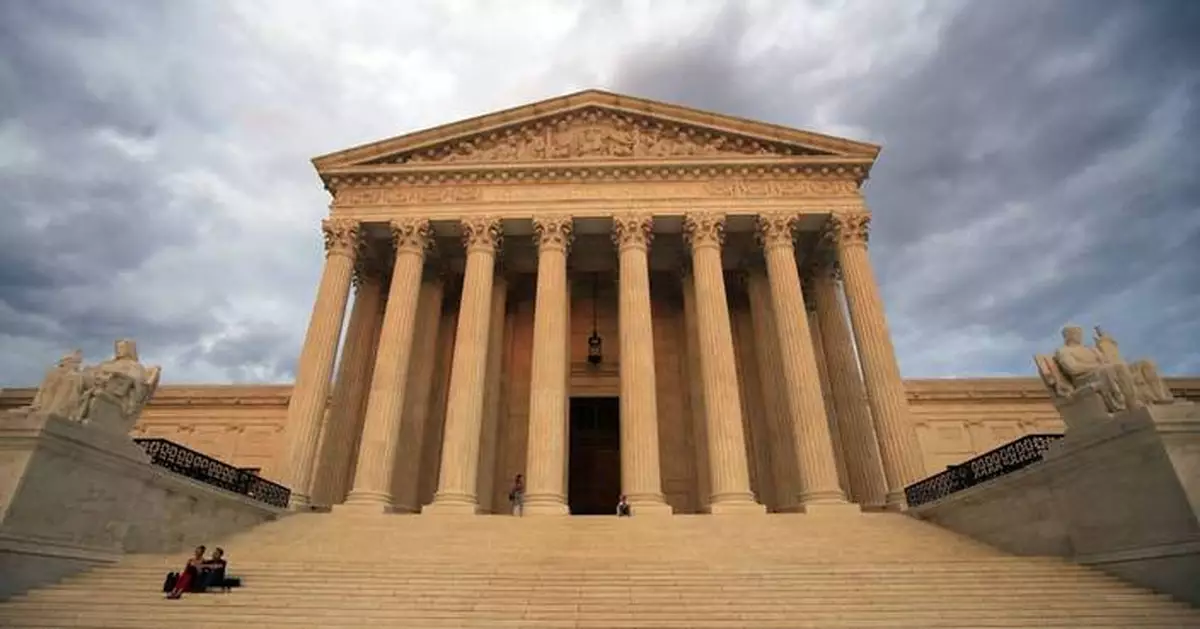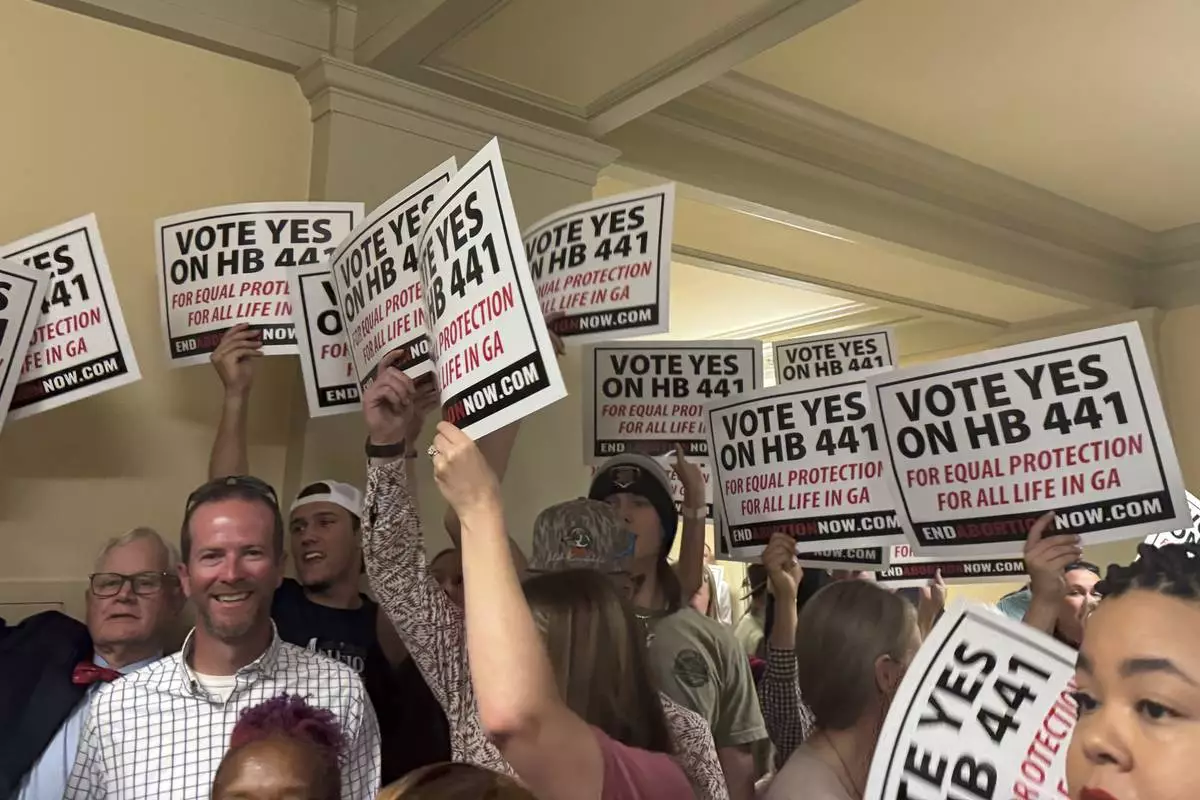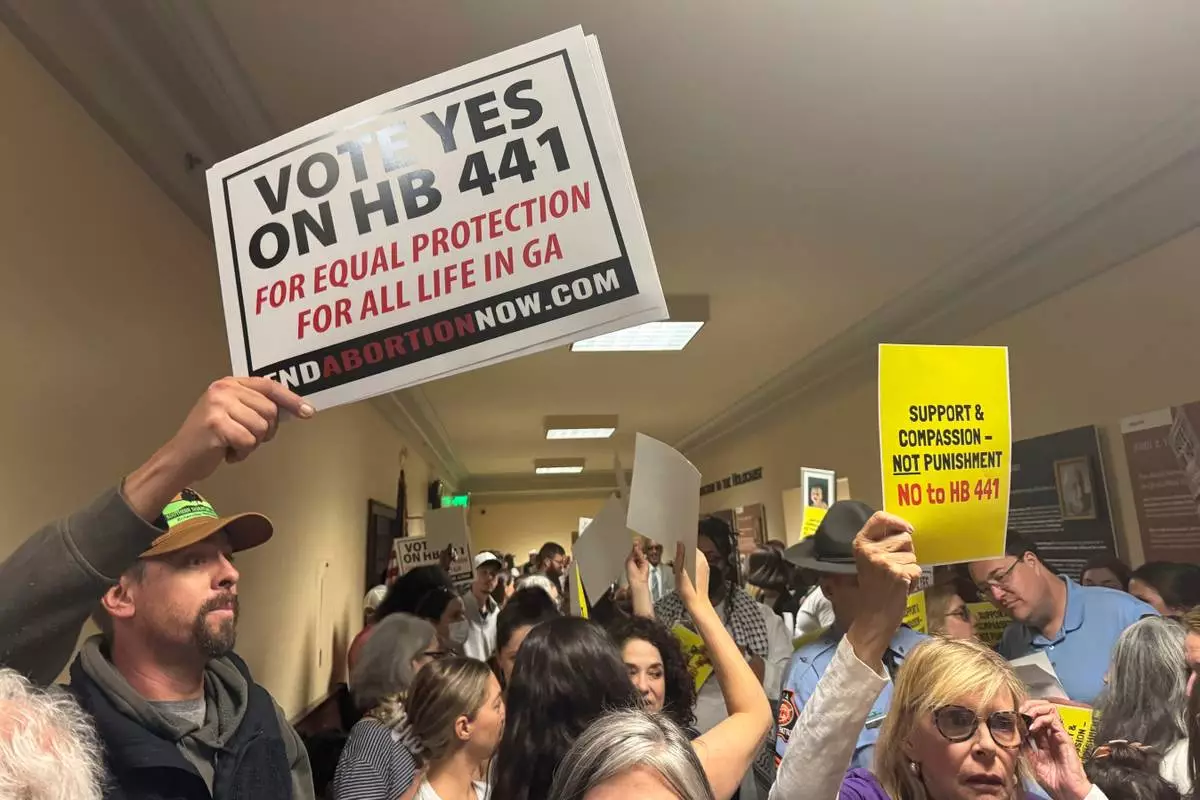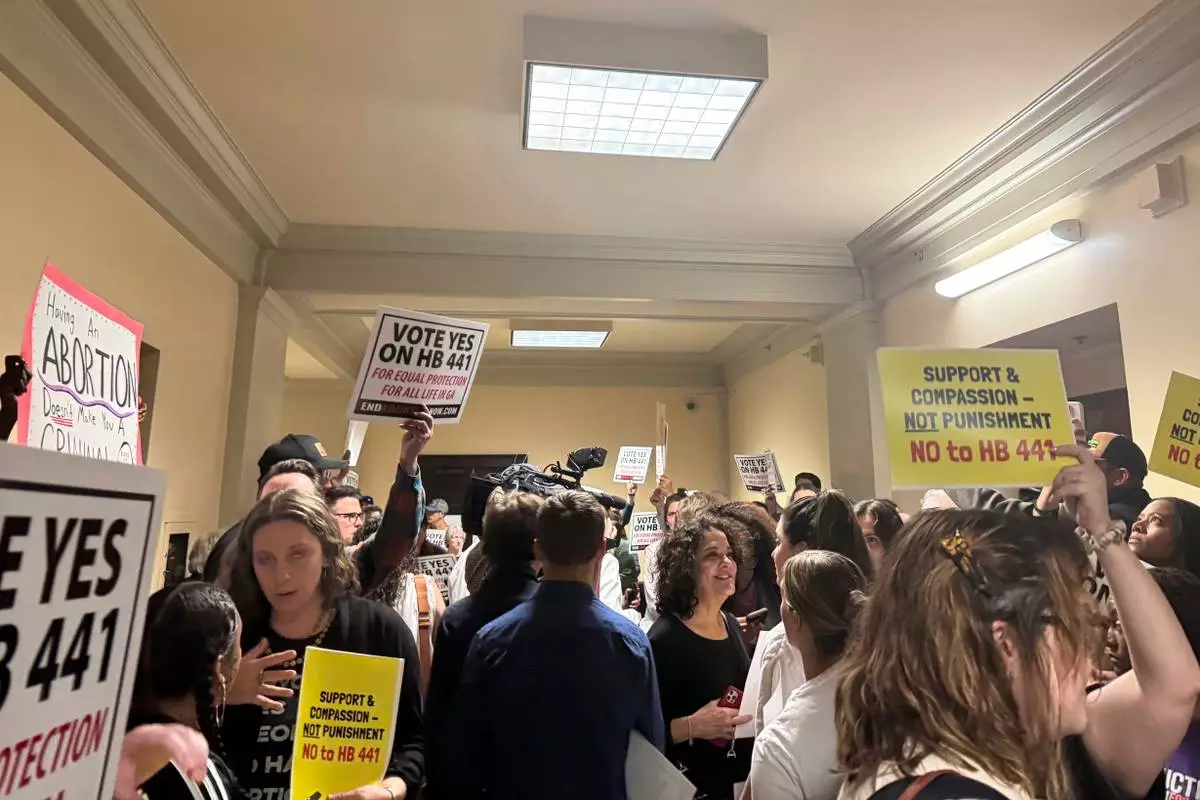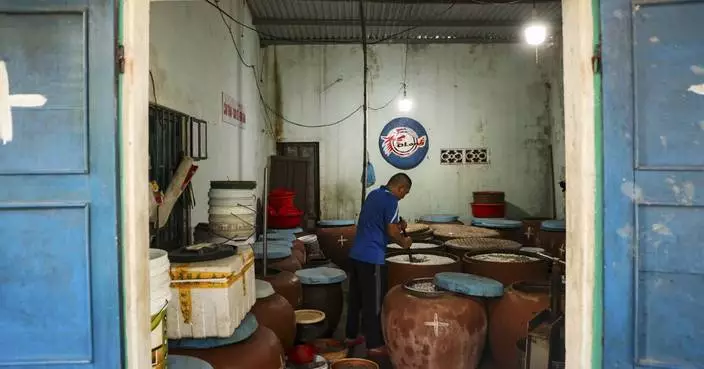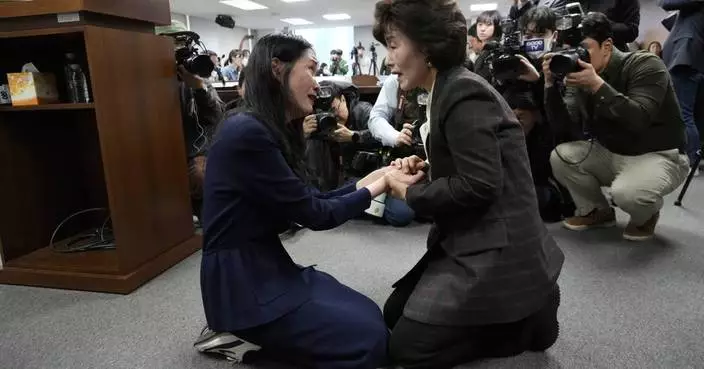WASHINGTON (AP) — The Supreme Court seemed closely divided Monday over a challenge to Louisiana’s congressional map, which added a second Black majority district.
Several of the court's conservative justices suggested they could vote to throw out the map and make it harder, if not impossible, to bring redistricting lawsuits under the Voting Rights Act.
The case involves the interplay between race and politics in drawing political boundaries in front of a conservative-led court that has been skeptical of considerations of race in public life.
Just two years ago, the court by a 5-4 vote affirmed a ruling that found a likely violation of the Voting Rights Act in a similar case over Alabama’s congressional map. Chief Justice John Roberts and Justice Brett Kavanaugh joined their three more liberal colleagues in the outcome.
That decision led to new districts in both states that sent two more Black Democrats to Congress.
At issue in the Louisiana case is a majority Black district that winds from Shreveport to Baton Rouge. Roberts described it as a “snake” that might violate the standard practice of drawing compact electoral districts.
The case features an unusual alliance of the Republican-led state government, which is defending the congressional map, and civil rights groups that more often find themselves fighting the state’s redistricting plans.
The United States is halfway to the next once-a-decade census, but the court is still dealing with lawsuits that grew out of the last one.
It has been a winding road. The court fight over Louisiana's congressional districts has lasted three years. Two maps were blocked by lower courts, and the Supreme Court has intervened twice. Most recently, the court ordered the new map to be used in the 2024 election.
The state’s Republican-dominated legislature drew a new congressional map in 2022 to account for population shifts reflected in the 2020 Census. But the changes effectively maintained the status quo of five Republican-leaning majority white districts and one Democratic-leaning majority Black district.
Civil rights advocates won a lower court ruling that the districts likely discriminated against Black voters.
The Supreme Court put the ruling on hold while it took up the Alabama case. The justices allowed both states to use congressional maps in the 2022 elections even though both had been ruled likely discriminatory by federal judges.
The high court eventually affirmed the ruling from Alabama, which led to a new map and a second district that could elect a Black lawmaker. The justices returned the Louisiana case to federal court, with the expectation that new maps would be in place for the 2024 elections.
The 5th U.S. Circuit Court of Appeals gave lawmakers in Louisiana a deadline of early 2024 to draw a new map or face the possibility of a court-imposed map.
The state complied and drew a new map.
One of the questions before the court is whether race was the predominant factor driving the new map. That's what white Louisiana voters claimed in their separate lawsuit challenging the new districts. A three-judge court agreed.
But Gov. Jeff Landry, a Republican, and other state officials argue that politics, not race, helped set the boundaries. The congressional map provides politically safe districts for House Speaker Mike Johnson and Majority Leader Steve Scalise, fellow Republicans.
The state acted to “protect our most high-profile incumbents,” state Solicitor General A. Benjamin Aguiñaga told the justices.
Some lawmakers have also noted that the Republican lawmaker whose district was greatly altered in the new map supported a GOP opponent of Landry in the 2023 governor’s race. Former Rep. Garret Graves chose not to seek reelection under the new map.
Louisiana argues that dueling lawsuits over redistricting make it almost impossible for states to know what to do.
Justice Elena Kagan was among the liberal justices who seemed supportive of the state, saying that states have to have “breathing room” to comply with court rulings, but also take other factors, including protecting incumbents, into account when redrawing districts.
“If the state can’t do that, the state has no breathing room,” Kagan said.
In a separate case, Louisiana is arguing that the section of the Voting Rights Act that allows minority groups to challenge state redistricting plans is unconstitutional. That issue could come to the high court in the next year or so, but the justices seemed unlikely to address it now.
Following arguments, Louisiana Attorney General Liz Murrill said she’s unsure what the outcome will be but is hoping that the court will give more guidance to legislators about the redistricting process.
Murrill, who was in the courtroom Monday, said that it is the Legislature’s job to draw new maps for the state and that the process should not be “a game of litigation experts and constant litigating” in federal courts.
In 2013, a conservative majority ended the use of the most powerful part of the voting rights law, the requirement that all or parts of 15 states with a history of discrimination in voting, which are primarily in the South, get Washington’s approval before changing the way they hold elections.
Six years later, the court ruled that federal courts have no role to play in partisan gerrymandering. Justice Clarence Thomas said the court also should no longer decide race-based redistricting cases. “Drawing political districts is a task for politicians, not federal judges,” Thomas wrote last year in an opinion no other justice joined.
The reconfigured 6th Congressional District stretches across the state, linking parts of the Shreveport, Alexandria, Lafayette and Baton Rouge areas. The percentage of Black voters in the district jumped from about 25% to 55%, based on data collected by the state.
The district's voters last year elected Cleo Fields, a Black Democrat. He returned to the House of Representatives, where he had served decades earlier.
The state also has changed the state's election process so that the so-called jungle primary will be replaced by partisan primary elections in the spring, followed by a November showdown between the party nominees.
The change means candidates can start gathering signatures in September to get on the primary ballot for 2026.
A Supreme Court decision invalidating the congressional map would leave little time to draw a new one before then.
A decision is expected by late June.
Cline contributed to this report from Baton Rouge, La.
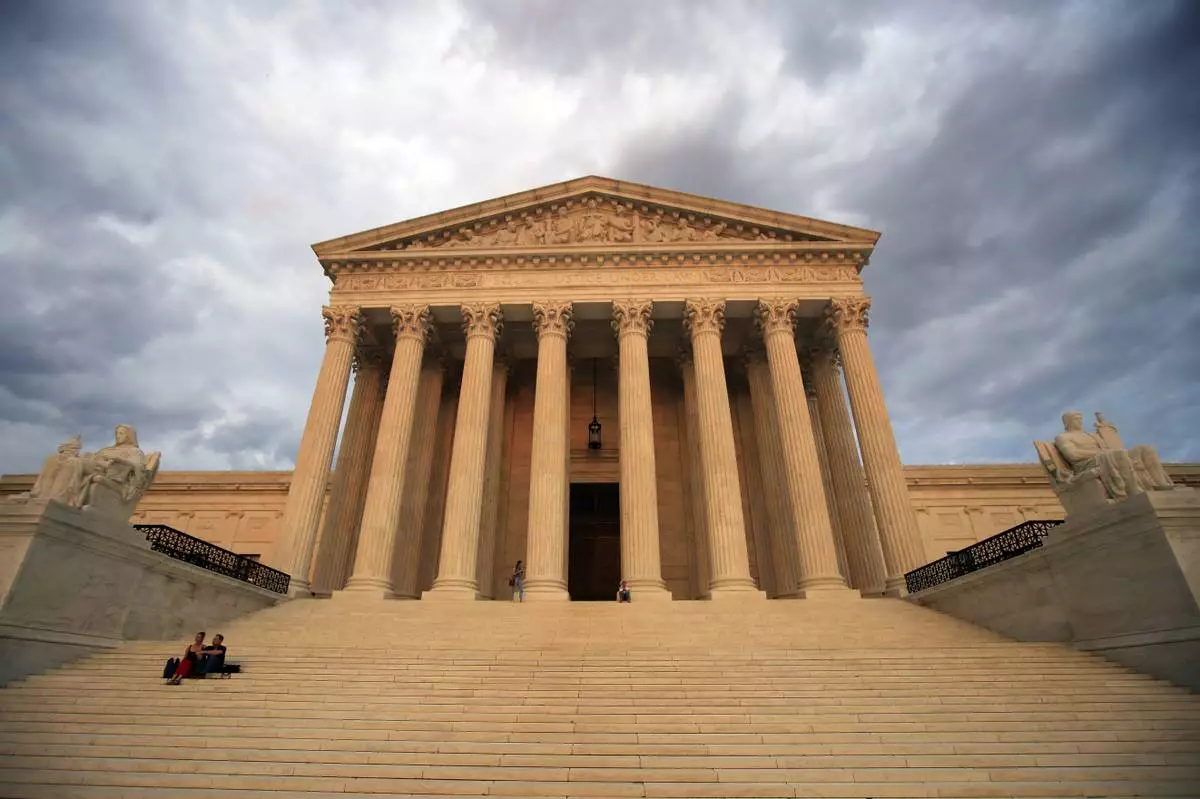
FILE - The U.S. Supreme Court is seen near sunset in Washington, Oct. 18, 2018. (AP Photo/Manuel Balce Ceneta, File)
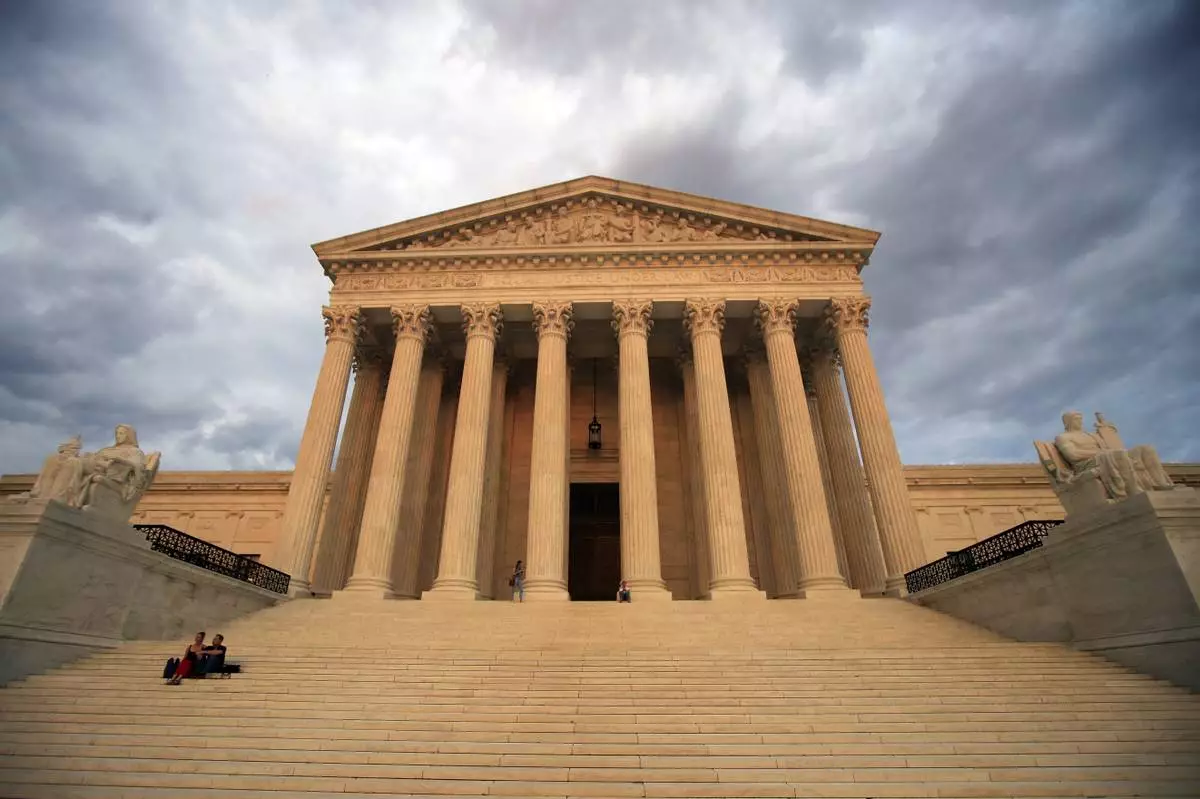
FILE - The U.S. Supreme Court is seen near sunset in Washington, Oct. 18, 2018. (AP Photo/Manuel Balce Ceneta, File)


